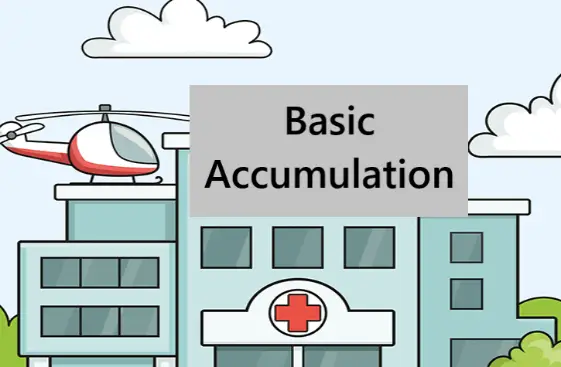Accumulation Basics for Physicians
Assume you make a doctor’s salary and are just starting. You need to understand the basics of accumulation.
Of course, you got a late start since you are old after med school and residency and might have a negative net worth (student loans). At least you got a big shovel, so it’s time to start digging away!
This is accumulation basics for folks with big shovels who feel like they got a late start. After maxing out your retirement plans, what should I do next if I want to retire eventually?
A Statement of Net Worth
If you don’t measure where you are now, how will you know where you are headed? Net worth is your current footprint on your journey to wealth. Like hopscotch, it goes to and fro, up and down, so don’t pay it much attention. But you track it like you track your kids’ height as they grow.
The first basic task in accumulation is to figure out a statement of your net worth. Where are you now?
Assets minus Liabilities equals net worth.
Start with your assets :
- Value of your home minus the amount on your mortgage
- Retirement accounts
- Any other cash or after-tax investments
Your liabilities include your mortgage, student loans, credit cards (which you should pay off as soon as possible), and any other debt you might have. New attendings may consider physician mortgages if they don’t have a 20% down payment for their starter home.
Assets minus liabilities equals your net worth. Have a plan to see that number grow.
Insurance
Next, we stop by at insurance. If you have people who depend on your income, you need term life insurance and disability insurance.
Term life insurance. Not whole or permanent life insurance unless you have a specific indication. I like LeverageRx for Term Life Insrance as they shop around for the best rates for early career physicians.
Most residents and early attendings should strongly consider an independent disability policy.
Umbrella insurance is also important!
Savings Rate
What is your desired saving rate? It needs to be 20-50%, depending on your goals.
Your first goal (after getting out of debt and having a positive net worth) is to get enough FU money to have a modicum of control at your J.O.B. Even if you don’t plan to retire early, you want to work because you enjoy it rather than because you need the money.
Your savings rate correlates directly with when you reach financial independence and can work on your terms because you want to and because it fulfills your purpose in life. That’s what retirement is… when you work because you have to do it for non-financial reasons.
Asset Allocation
What is your asset allocation?
Early in accumulation, especially with a big shovel, it is fine to be 100/0 or 95/5 if you want some cash sitting around. Just buy VTI when you have money and never sell it. Also, please understand you make money when the market crashes and people panic and sell low. They transfer their money only if you don’t panic and sell low. You can’t ever do that. Not once in your life. Until you understand that volatility is a feature rather than a bug of the stock market, don’t invest.
And an emergency fund? A couple of months is fine, but isn’t that what a credit card is for when you know you have a big check coming in the mail every two weeks that will pay off most emergencies around the homestead?
Accounts
What accounts do you have?
Here is the ideal: you have one retirement plan, a Roth something, and a brokerage account that includes your emergency fund (cash).
More often than not, you have a few retirement plans from training that you need to consolidate at some point. It will be painful now or later. Get everything in your employer retirement plan (if you want to do a backdoor Roth), or pick a simple pre-tax IRA.
Speaking of Roth, above and beyond your retirement accounts, Roth is next best. Of course, Roth might be best at any year, depending on this year’s tax bracket. But, wow, that tax bracket arbitrage gets complicated quickly. Most with big shoves should save on taxes now and do traditional rather than Roth.
Next, most physicians should regularly invest in a brokerage account to reach an adequate savings rate. This is pay yourself first; set up a bi-weekly auto deduction from your bank account that automatically buys VTI. Of course, you can do a backdoor Roth before you fill up your brokerage account.
Your money makes money through entrepreneurship (you create your own business), real estate, or the stock market. The stock market is, by far and away, the best way to get passive income for the rest of your life. If you know what passive income means (and not what the real estate folks think it does), then you will know what I’m talking about. Real estate and entrepreneurship are optional on the path to wealth if you have a big shovel. Remember, it’s mostly about savings rate anyway during accumulation.
The Basics of Accumulation
The basics of accumulation require that you understand a few things, such as a statement of net worth, basic insurance needs, savings rate, and asset allocation. Understanding these basics gets you into the 99th %ile of financial literacy.
With a big shovel filling a big savings rate, you need only work to optimize your work and show up as your best every day.
